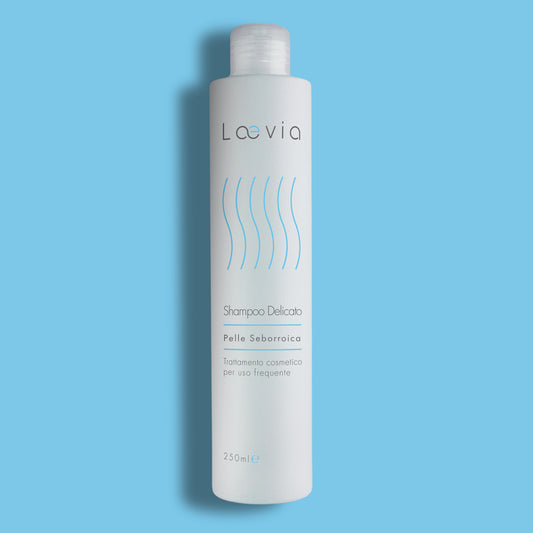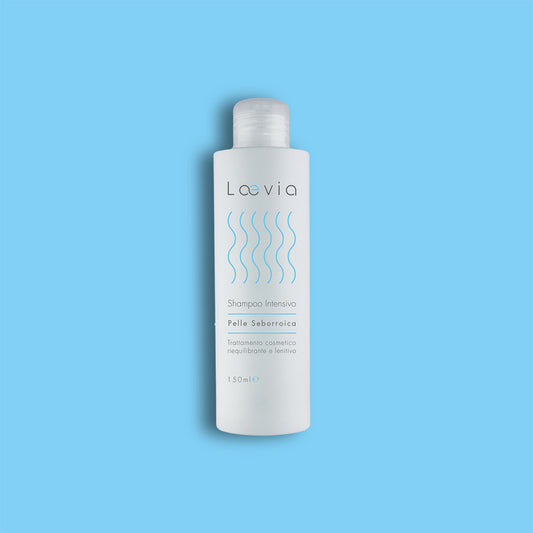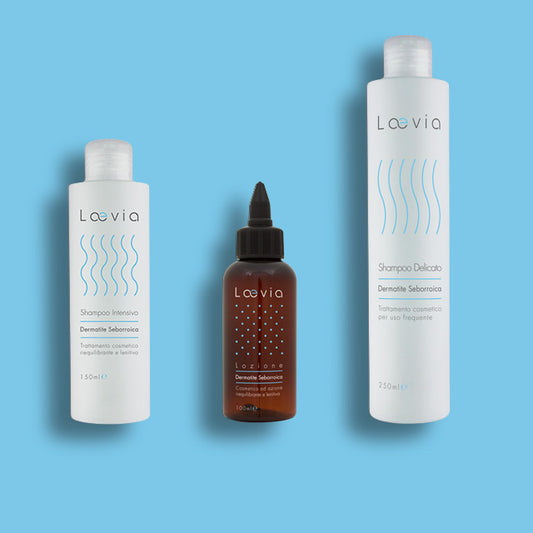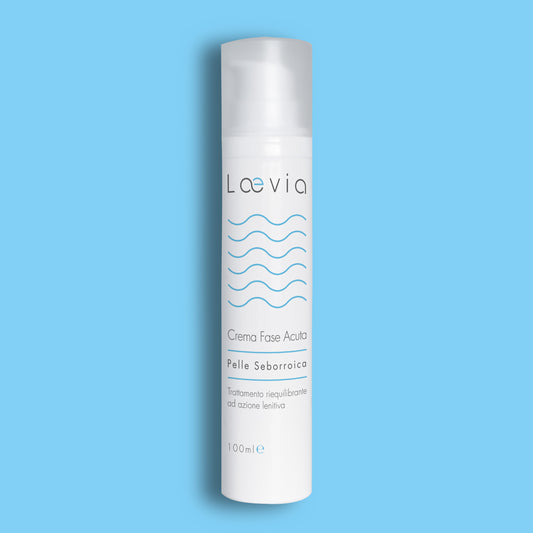When the skin appears greasy and flaky, as in the case of seborrheic dermatitis, the first reaction would be to clean it thoroughly to remove the annoying and embarrassing excess sebum that covers it.
Washing your hair frequently to eliminate excess dandruff is also a wrong and counterproductive attitude.
An aggressive and frequent cleansing action, in fact, would cause excessive sebum production, further increasing the greasy appearance and dandruff on the scalp.
It is therefore better to wash with the right frequency, using delicate and emollient detergents that respect the natural defenses of the skin and scalp.
Defend the hydrolipidic coat from desquamation
This is the name of the natural barrier, composed of sebum and water, which the skin covers to protect itself from attack by external agents.
This is why it is important to defend it, also through correct personal hygiene - i.e. cleansing and hydration - which does not damage the layer of skin cells.
One of the first signs that something is wrong with the 'hydrolipidic mantle' is the appearance of areas of flaking, one of the main characteristics of seborrheic dermatitis.
There are various causes that can cause the skin and scalp to change their appearance and tissue consistency: alterations in the immune defenses, genetic predisposition, hormonal variations, neurological diseases, inappropriate hygiene and the use of detergents or lotions that irritate the skin.
Effective cleansing that also preserves the integrity of the skin is essential for all skin types, especially if it is affected by seborrheic dermatitis.
There are some golden rules to follow in order to alleviate the symptoms of seborrheic dermatitis and, at the same time, keep the skin's natural defenses intact:

Use mild detergents
The skin must always be treated delicately, especially if it is affected by some chronic, inflammatory and irritative disorder such as seborrheic dermatitis.
It is better to prune for the use of neutral detergent products (pH= between 5 and 6), preferably based on glycerin, silk proteins or collagen and exclude all those solutions containing detergents and degreasing substances (SLES, SLS, PEG, EDTA, Parabens and Petrolates) which further increase the irritation already caused by seborrheic dermatitis.
The daily use of delicate and specific cleansers for the problem of flaking and greasy skin represents a remedy to counteract and prevent the symptoms of seborrheic dermatitis.
Rinse thoroughly
Water also has its importance. After using suitable detergents, the skin should be rinsed thoroughly with fresh, running water, i.e. low in limescale residues.
If you live in an area where the water is 'hard', i.e. rich in mineral salts, it is better to rinse using low-mineral water to avoid drying or further irritating the skin.
Let's make ourselves beautiful while respecting our skin
A little makeup always makes a woman feel comfortable and more at ease with herself.
Even if the skin is affected by seborrheic dermatitis, it is possible to apply make-up, as long as it respects the characteristics and needs of the skin.
It is better to choose branded cosmetics, because they are dermatologically tested, first applying small quantities of the product to a part of the face to see if irritation or an allergic reaction appears which would worsen the condition of the skin already affected by seborrheic dermatitis.
In case of irritation of the skin on which you have applied the quantity of product, the use of the cosmetic should be suspended.
Furthermore, it is always necessary to check that cosmetics do not contain substances that favor the formation of comedones and blackheads, such as particular emulsions, dyes, preservatives, sunscreens and excipients.
The skin must be protected both above and under make-up. To create the right protective film it is best to apply light bases such as moisturizing creams in aqueous solution, in gel, based on proteins, glycosaminoglycans, collagen, elastin and free of fatty components.
On top of the make-up, however, it may be useful to apply face powder, in powder or compact form, which helps to absorb greasiness and make the skin more opaque.
It is important to remember to remove make-up in the evening, using a cleansing milk that respects the acidic pH of the skin and the hydrolipidic layer, preferably if already formulated for oily skin and easy to rinse.
Remember to nourish and hydrate your skin
The word 'nutrition' is often linked to creams with a mostly fatty component.
Then it is better to start nourishing your skin from the inside with a healthy diet that your dermatologist, nutritionist or specialist can recommend.
On visibly better skin, the effect of any cosmetic remedy will be better, even for skin with seborrheic dermatitis.
Good skin hydration also starts from the inside. Therefore, it is essential to make sure you drink at least 1.5-2 liters of water a day, excluding sugary drinks, alcohol and coffee which can alter the composition of sebum and worsen the symptoms of seborrheic dermatitis.
If you are looking for a product with a protective and preventive action for seborrheic dermatitis, you can resort to the use of masks based on phospholipids, which are among the main constituents of cell membranes, to help restore the sebaceous balance of the skin.
Take care of your skin even at night
Seborrheic skin should be allowed to breathe at night without applying anything to its surface.
However, in case of irritation, it is possible to make chamomile and mallow compresses, or use soothing emulsions based on witch hazel, burdock, aloe, alphabisabolol and azulene.
From time to time, you can use clay masks, which can have a tightening and calming action on the skin.
However, be careful with antiseptic lotions containing disinfectants and comedogenic or sensitizing substances.
For him too
Seborrheic dermatitis is not just a female problem but also affects men's everyday life.
If the lesions are primarily located on the face, shaving and shaving may pose a risk of further skin irritation.
So, what to choose in the morning between an electric razor and a razor blade? Experts recommend the razor blade, because it avoids putting the skin in contact with the heat produced by the electric razor, a further source of stress for skin irritated due to seborrheic dermatitis.





